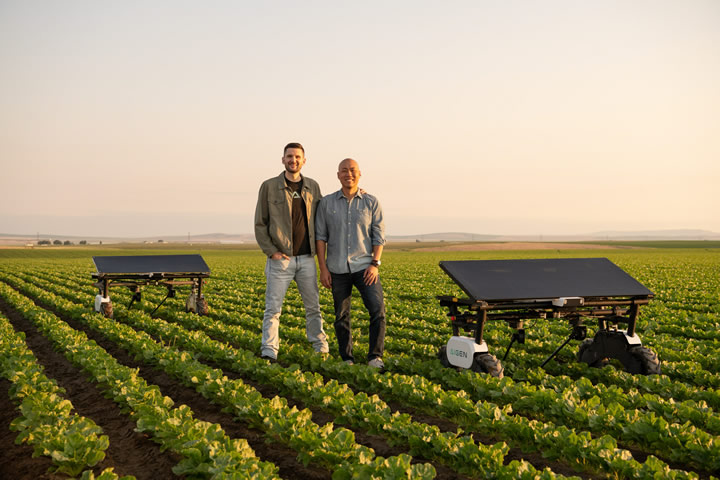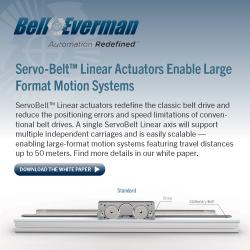Aigen Unveils the World's First AI-Driven, Solar-Powered, Agricultural Robotics Service

"Aigen was founded on the idea that there should be an alternative to the fossil fuels and pesticides used to produce our food. We have been working closely with farmers, like my family in Minnesota, to develop a solar-powered, on-edge AI platform that makes precision Ag scalable," said Rich Wurden, co-founder and CTO of Aigen. "We are excited to share those tools with the introduction of the Aigen Element."
Earlier this year, 2024 and 2025 pre-orders for the Element Service sold out in one day, further demonstrating the excitement among U.S. commodity farmers for more effective approaches to weeding. In the U.S. alone, farmers use 900 million pounds of herbicide annually, and in the next few years, costs are expected to exceed $100 per acre. Plus, in 2019, farm equipment released 100,000 metric tons of carbon dioxide equivalent emissions.
"Farmers tell us again and again that weeds are the number one problem they face. So, that's where we're starting: developing a solution for farmers to immediately reduce their costs and get rid of weeds, all while growing healthier crops," said Kenny Lee, Aigen's co-founder and CEO. "The benefits of our advanced, lightweight, super agile robots go far beyond weeding. We are excited to deliver field-level network connectivity and real-time data and insights that farmers can access from anywhere."
Artificial Intelligence, Powered by Renewable Energy
Aigen's unique robotic solution is possible thanks to the company's proprietary quantized AI, which is so efficient it can run exclusively on renewable energy. "The average cell phone needs 4 Watts of power. Our AI models need only 1.5W, and everything about our vehicle is just as efficient. Paired with a custom 205W solar panel, our robots often generate a power surplus at the end of a full day of running," added Wurden.
Plant-Level Data, Planetary Connectivity
Aigen's vehicles continuously transmit field and crop data to an in-house developed mobile app, offering farmers real-time insights. "We're bringing satellite technology down to earth, and deploying mesh network connectivity built on a robust, self-reliant hardware platform. This offers farmers higher resolution, real-time data and helps them get ahead of problems," said Puneet Khattar, Aigen's head of electrical engineering, who previously worked on Amazon's satellite program and at SpaceX.
Rugged and Agile Hardware
Every aspect of the Aigen Element robot is built for maximum efficiency on the farm. The lightweight frame and solar panel, paired with regenerative motors and rugged suspension, allow the robots to effectively navigate and weed row crops for up to 14 hours a day in nearly any weather condition.
The Aigen Element Service will debut on over 20,000 acres of U.S. farmland in 2024.
About Aigen
At Aigen, we believe in a future with no harmful chemicals in our food – where farmers prosper, people thrive, and the planet flourishes.
With roots in farming, electric vehicles, robotics and impact investing, Rich Wurden and Kenny Lee founded Aigen in 2020 to connect farmers to breakthrough technologies, decarbonize agriculture, and improve human and planetary health. Aigen's Element vehicles can autonomously navigate, weed, and analyze row crops without any chemicals or diesel fuel. Offered as a service, Aigen's vehicles reduce farmers' workload and their reliance on fossil fuels, while increasing their crop and soil health.
Seattle-based Aigen is backed by New Enterprise Associates, Bessemer Venture Partners, Cleveland Avenue, ReGen VC, Global Founders Capital, Industrious Ventures, E2JDJ, and AgFunder.
Learn more at aigen.io.
Comments (0)
This post does not have any comments. Be the first to leave a comment below.
Featured Product


